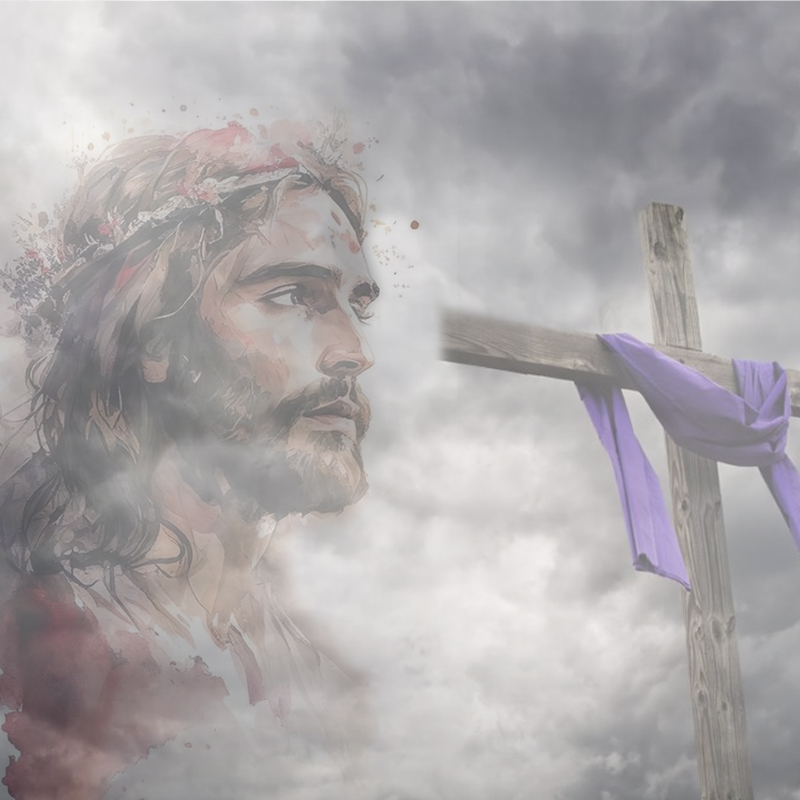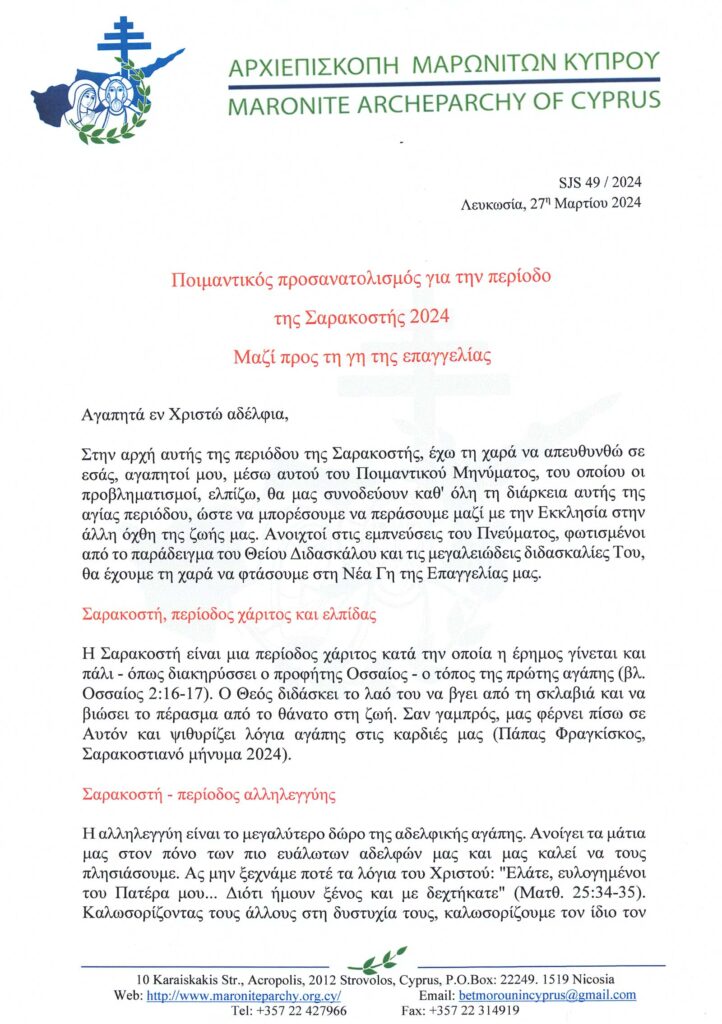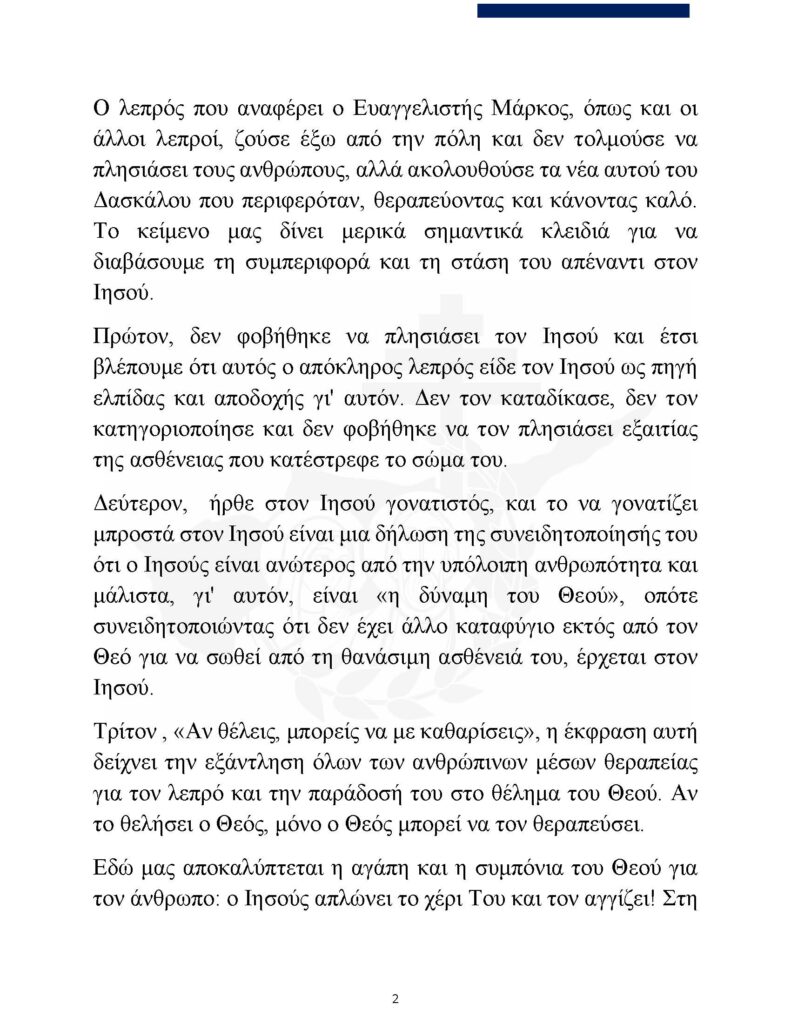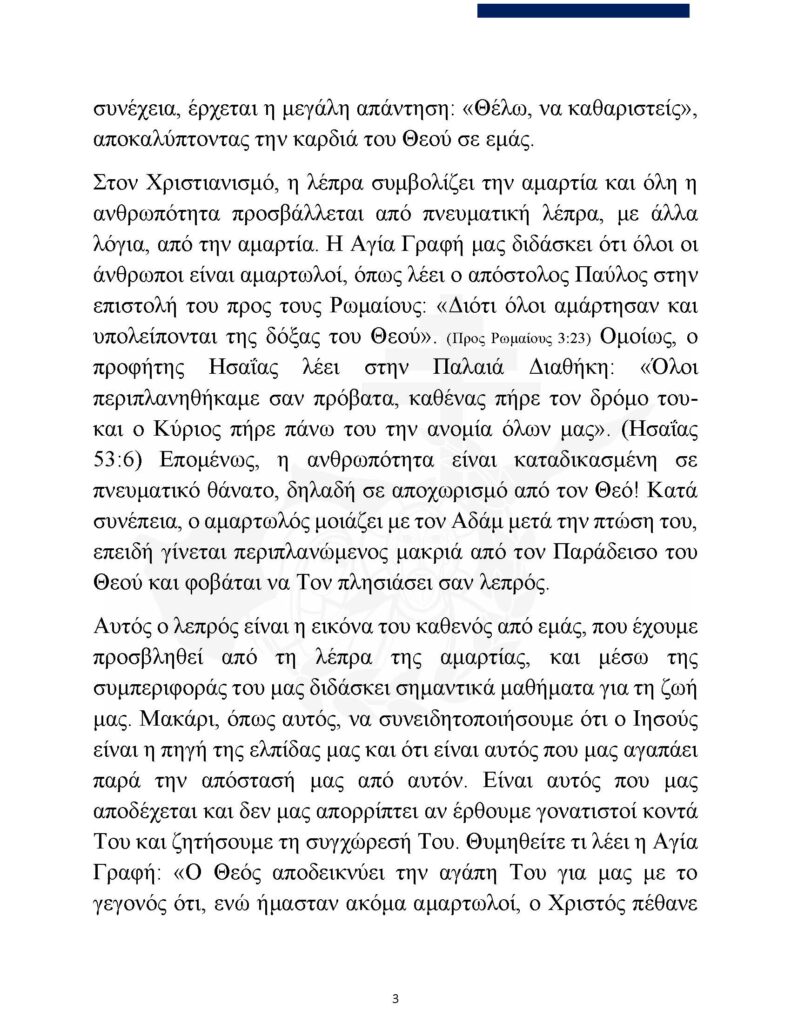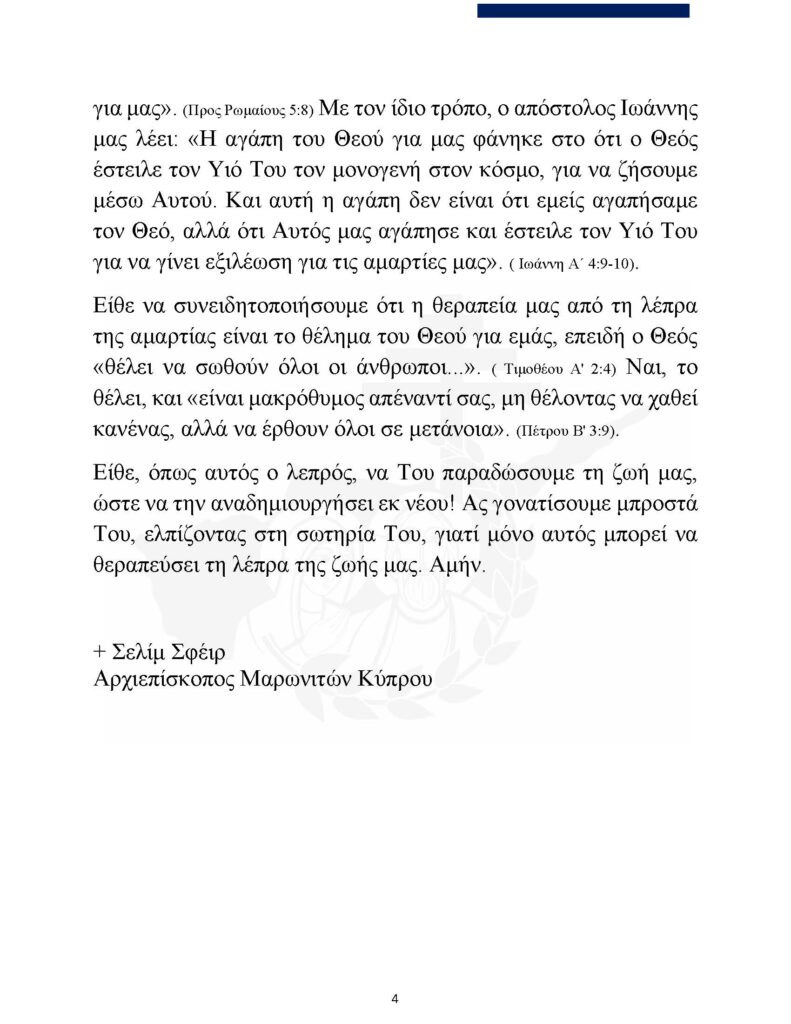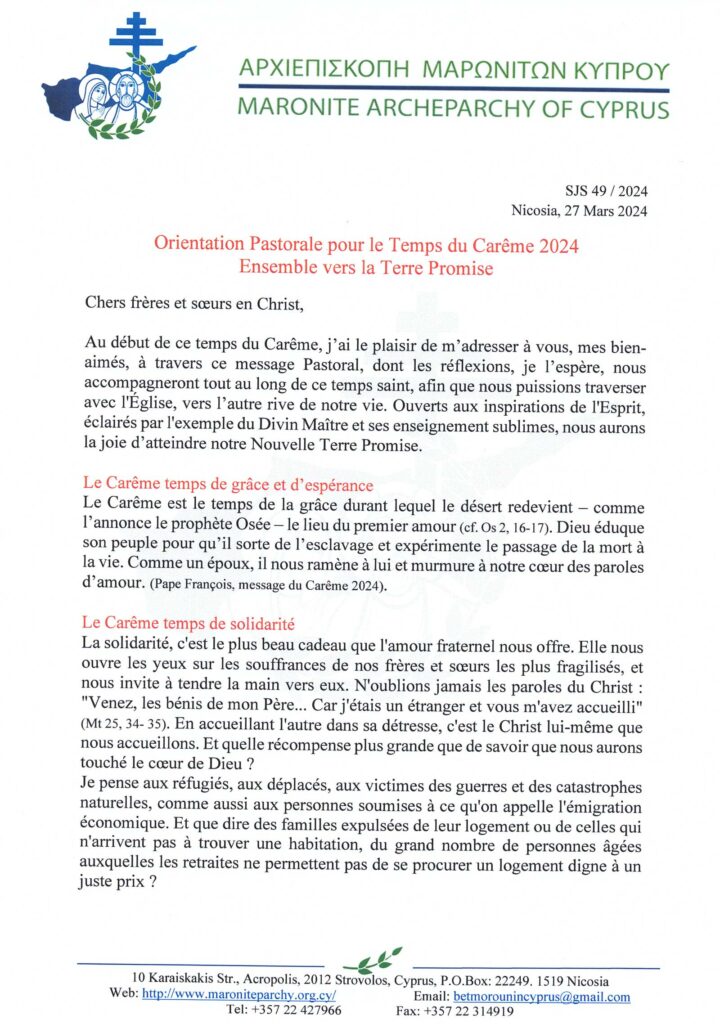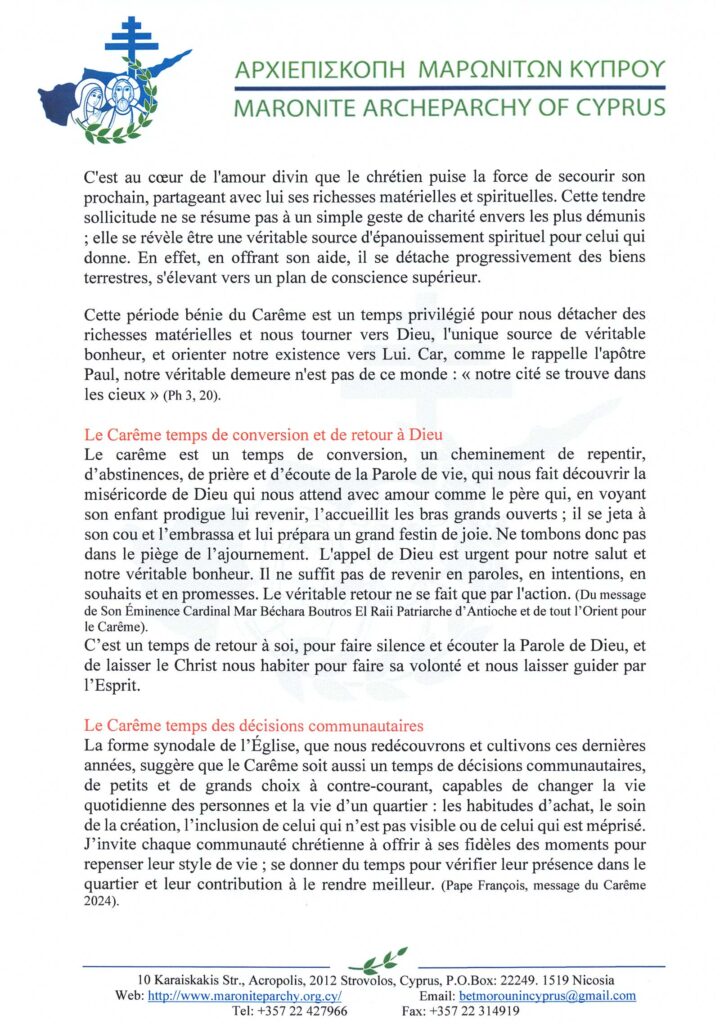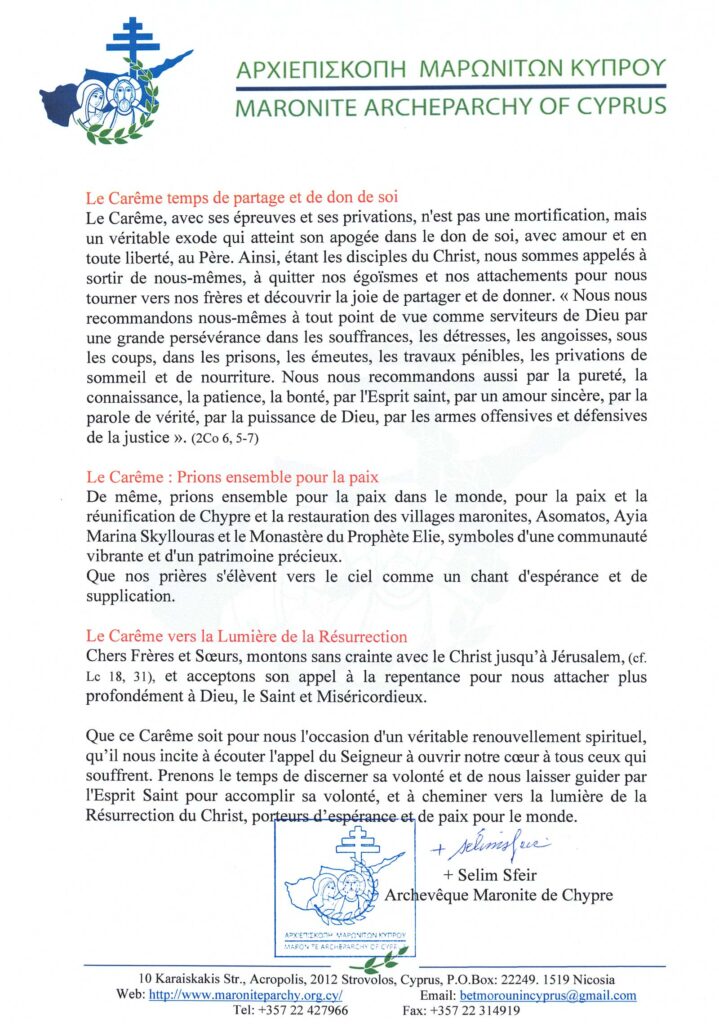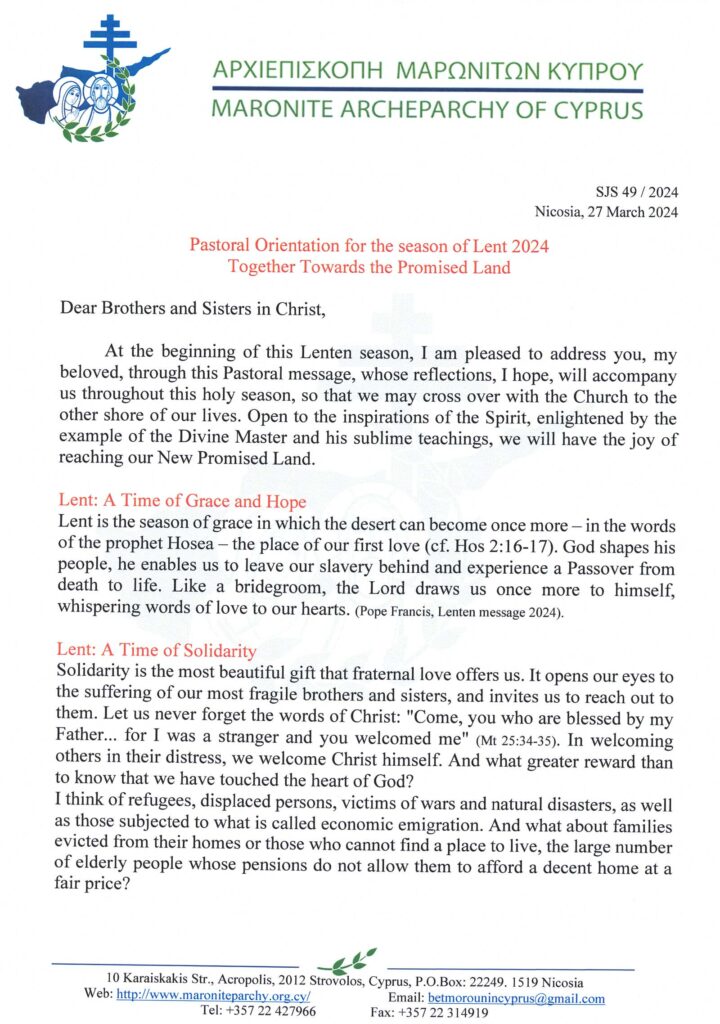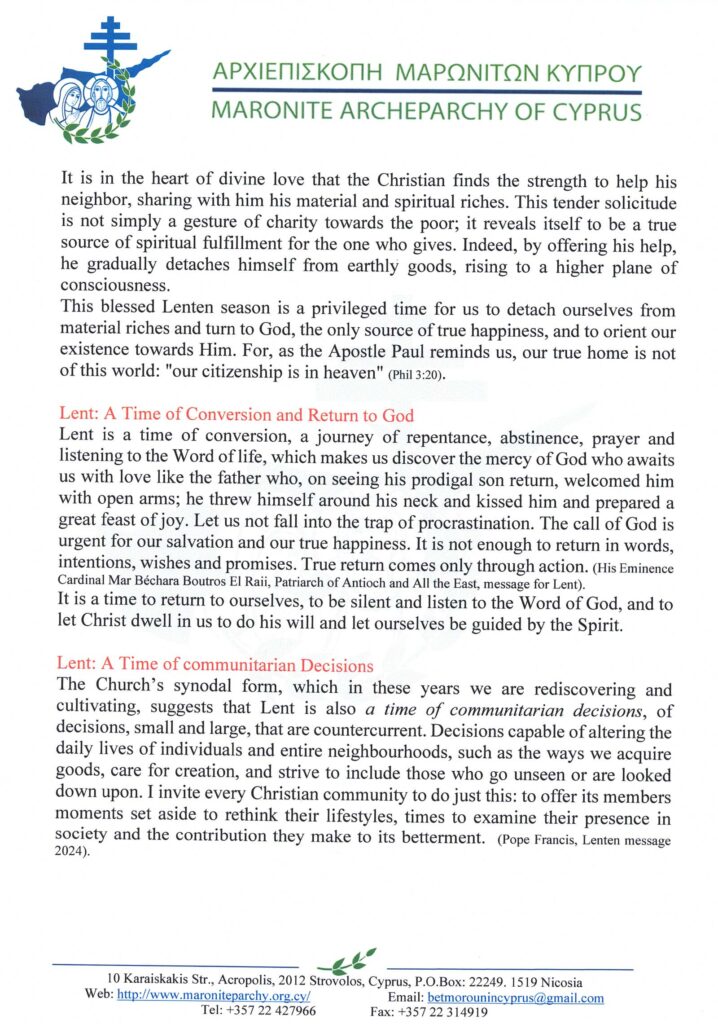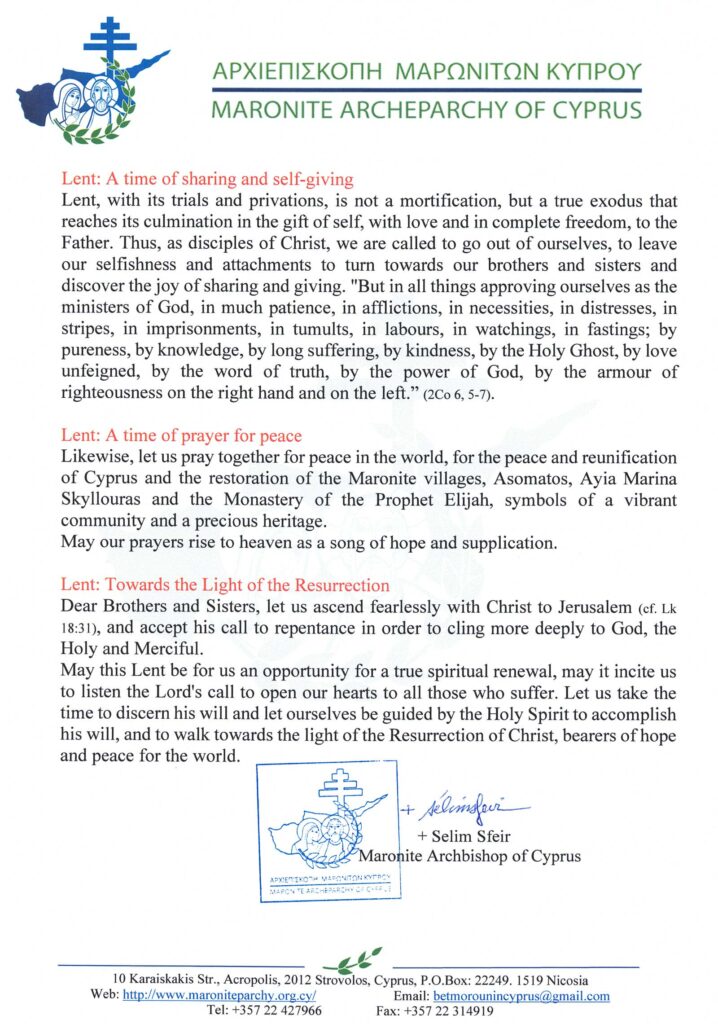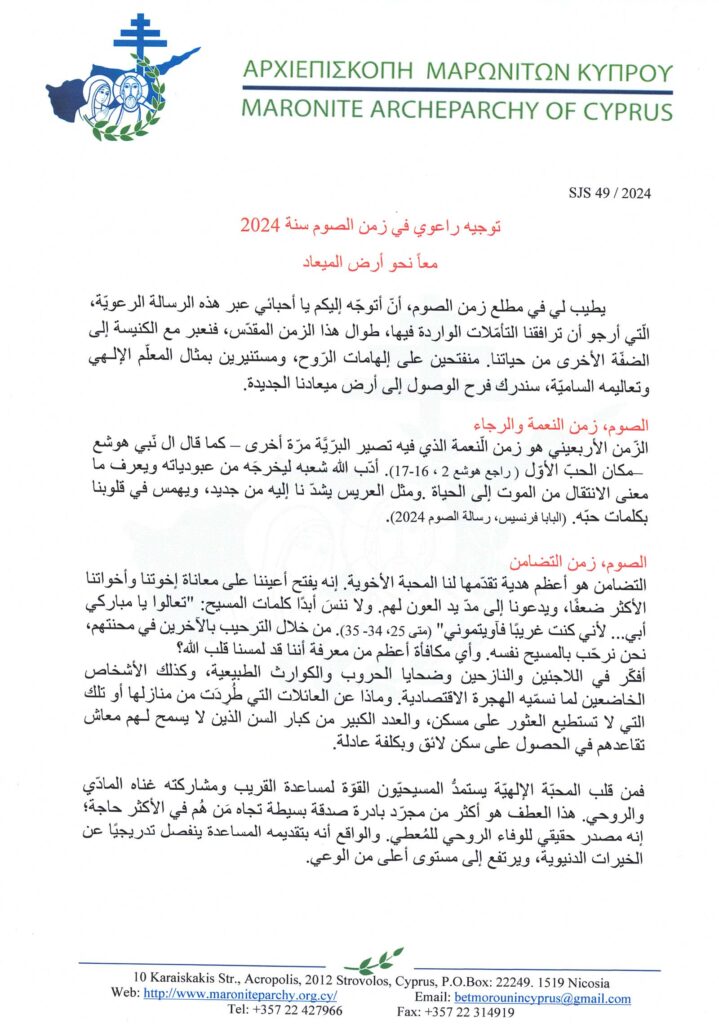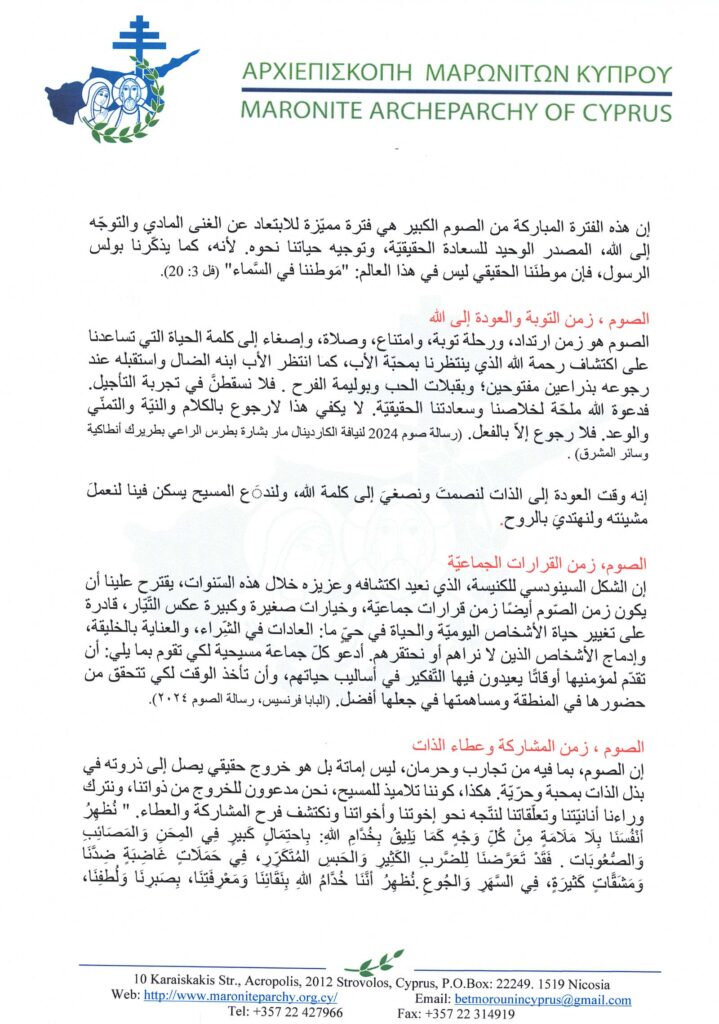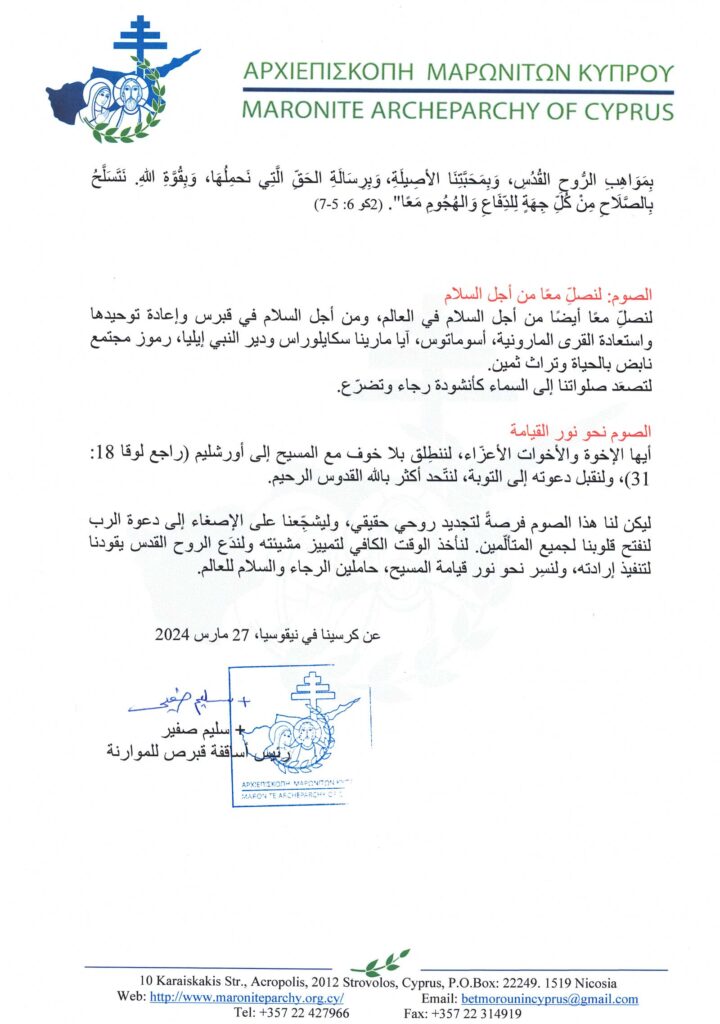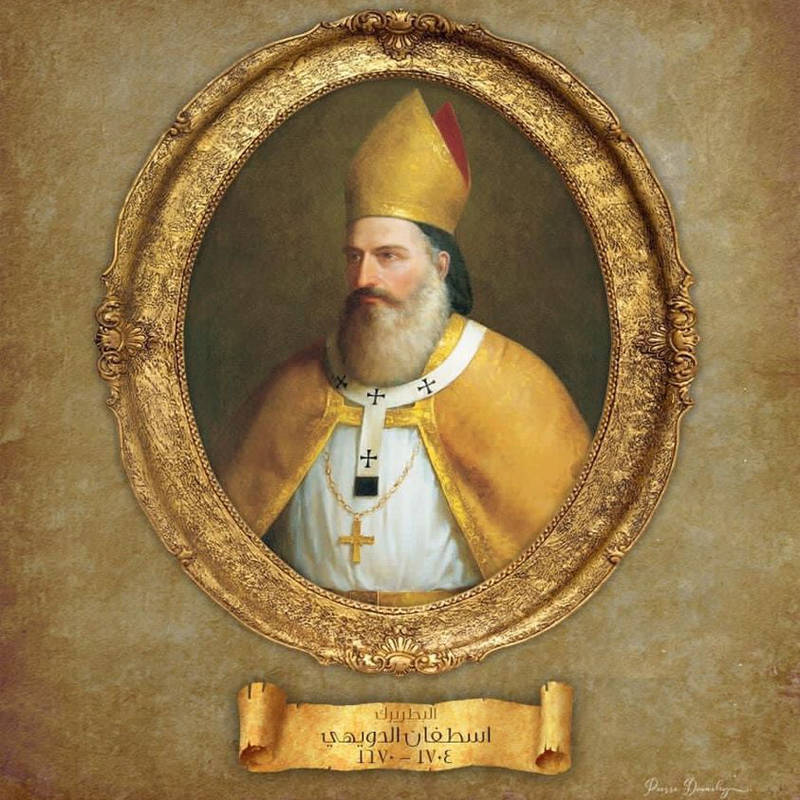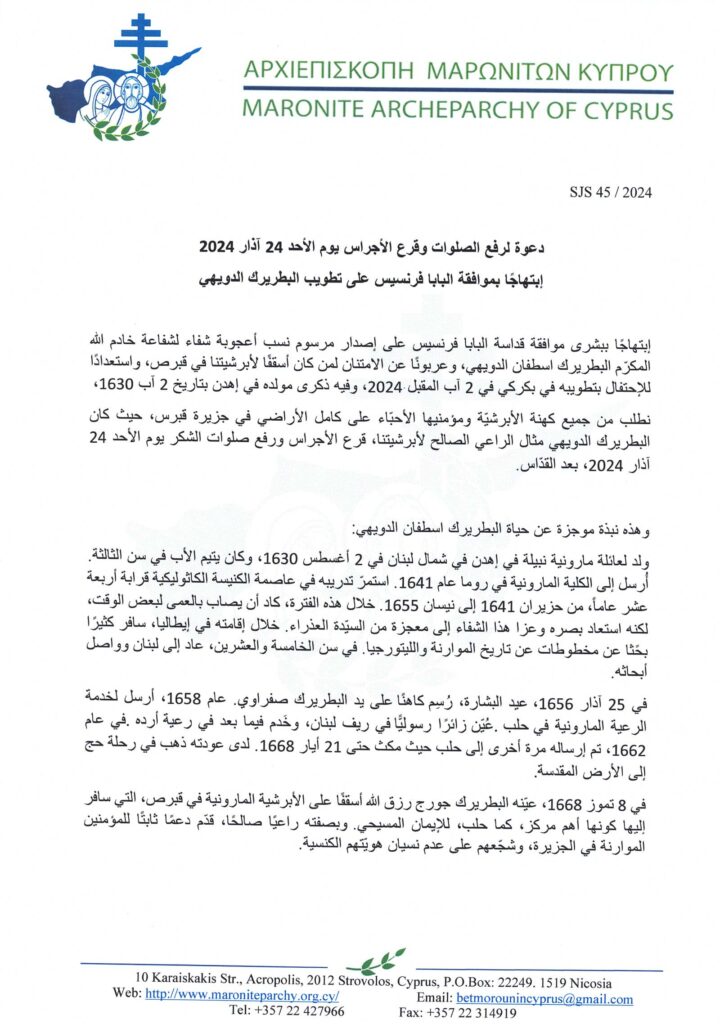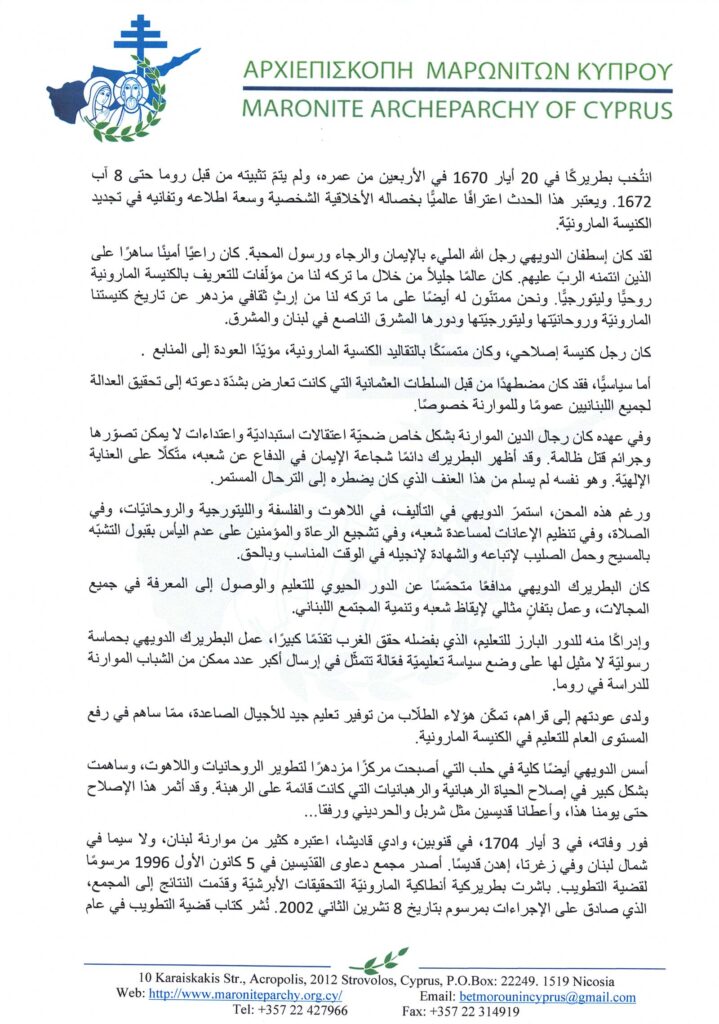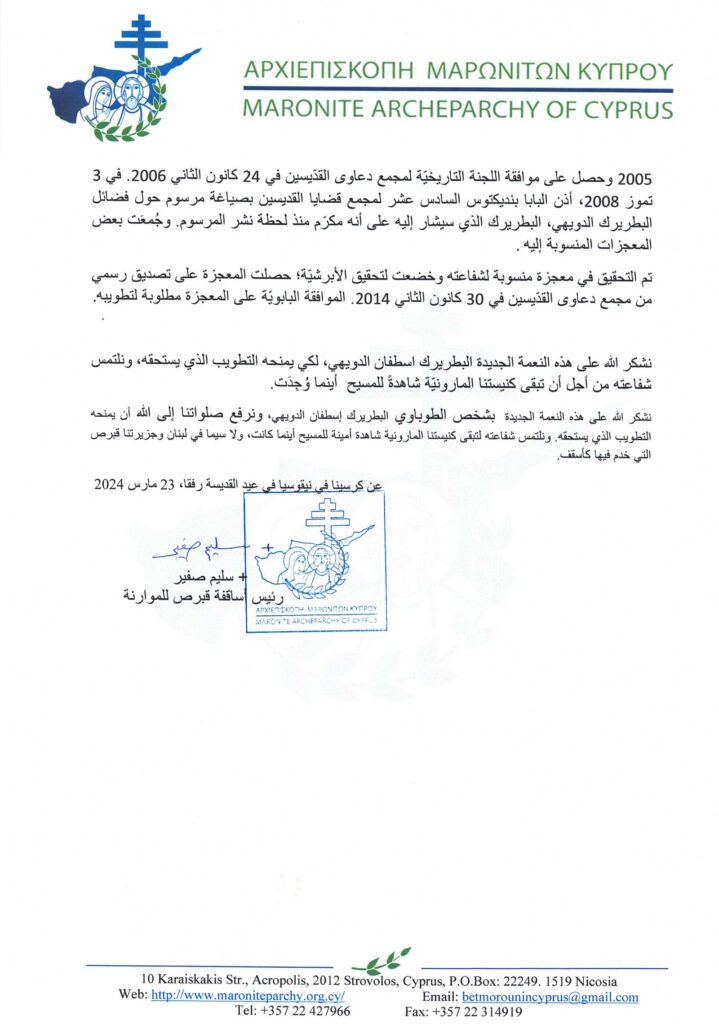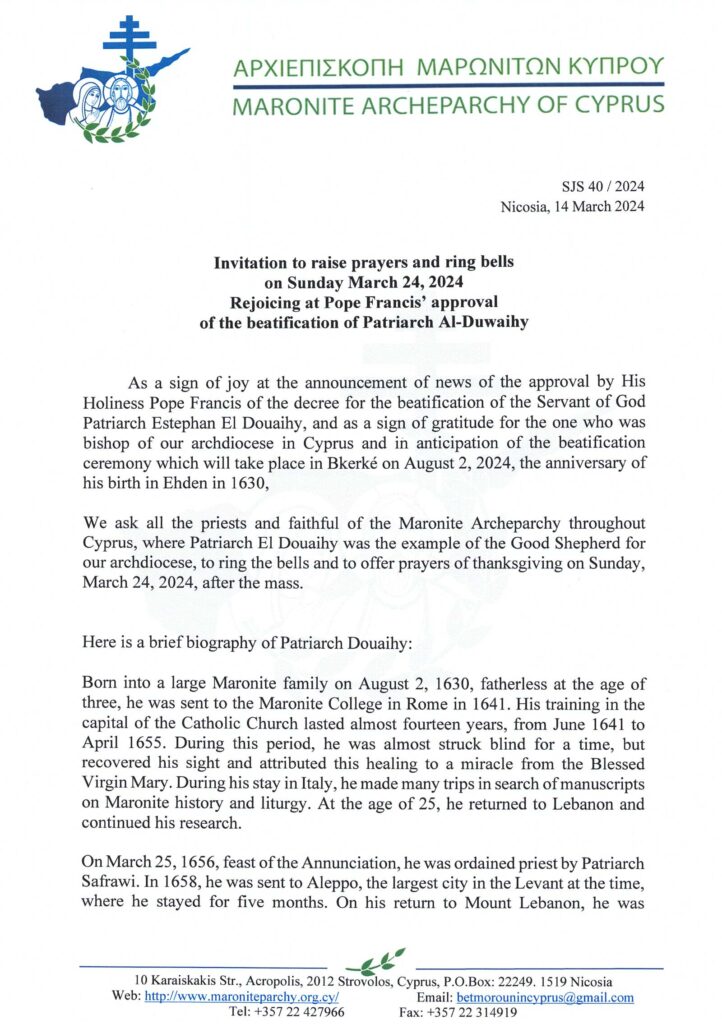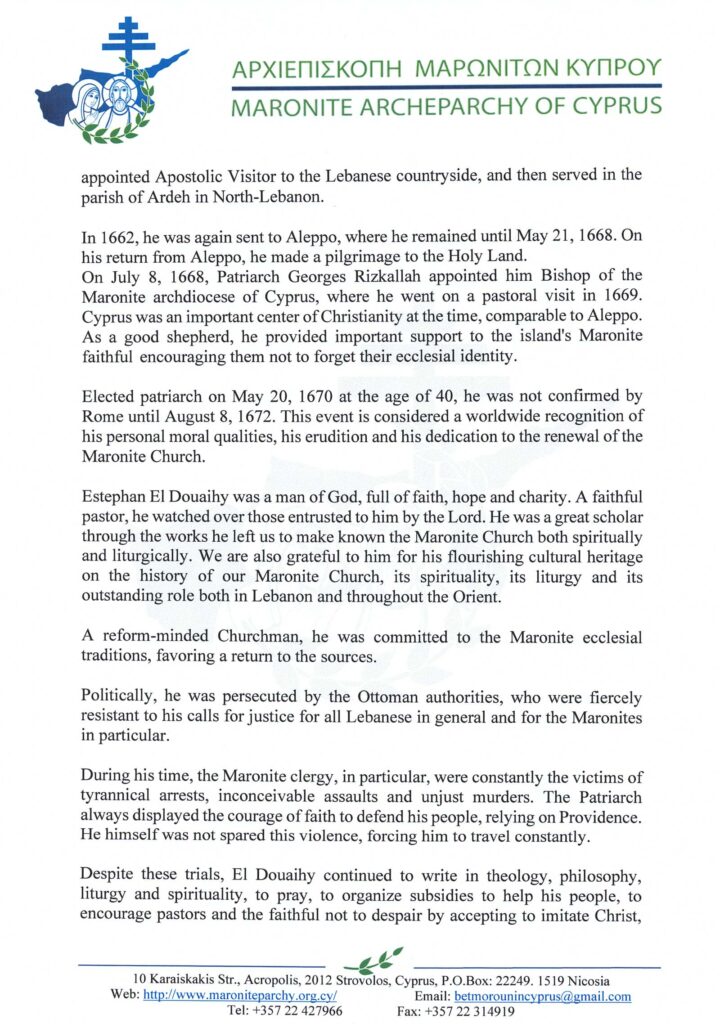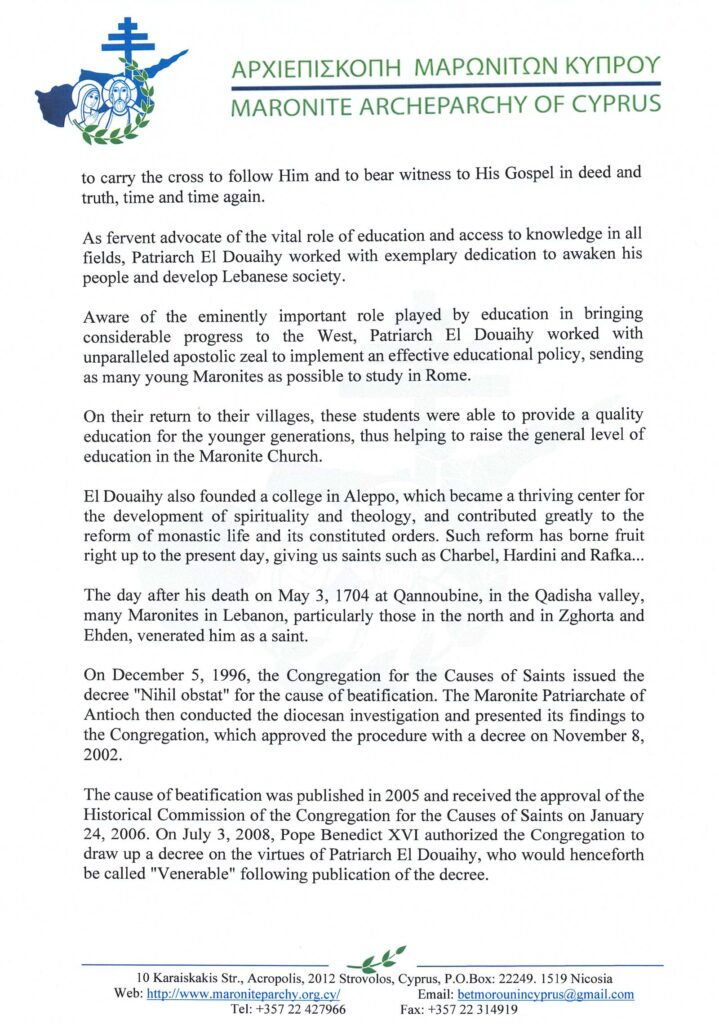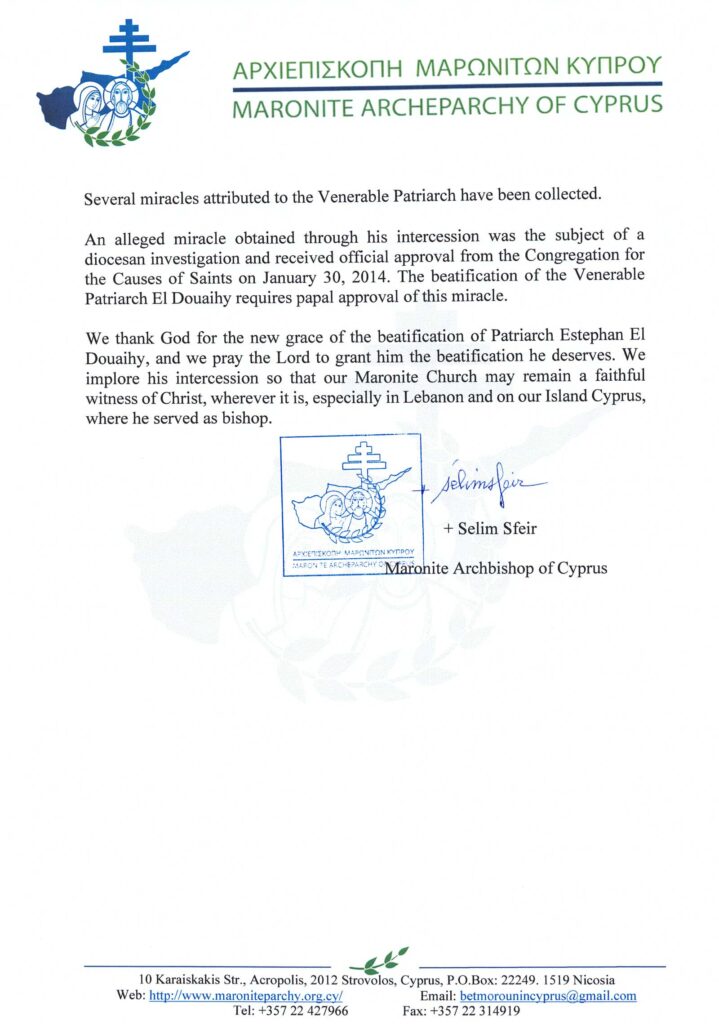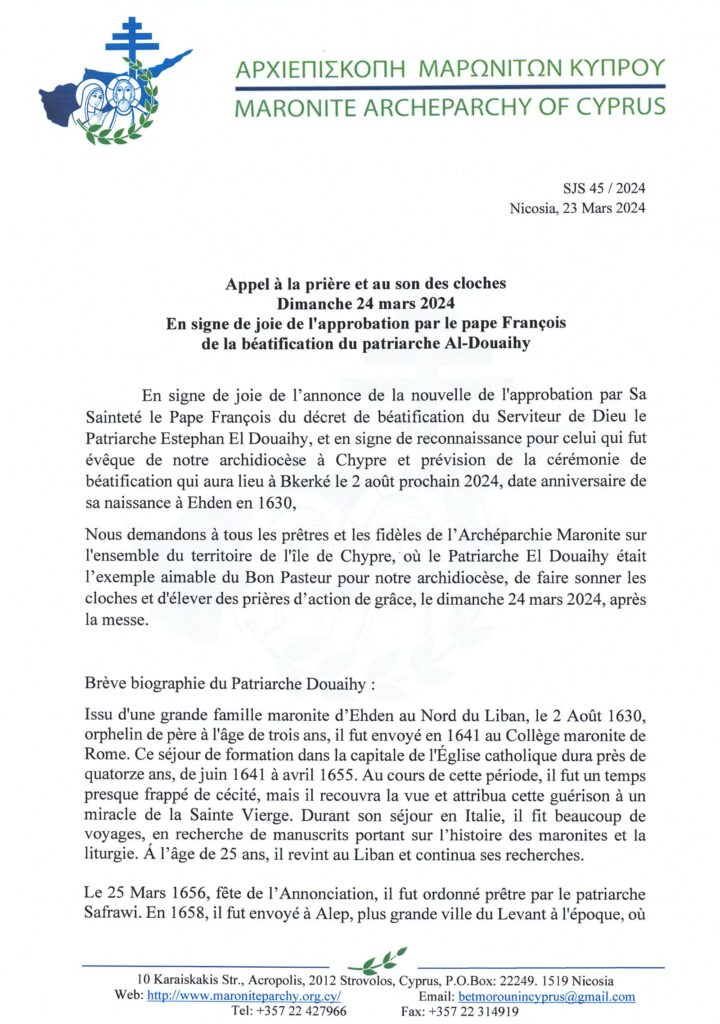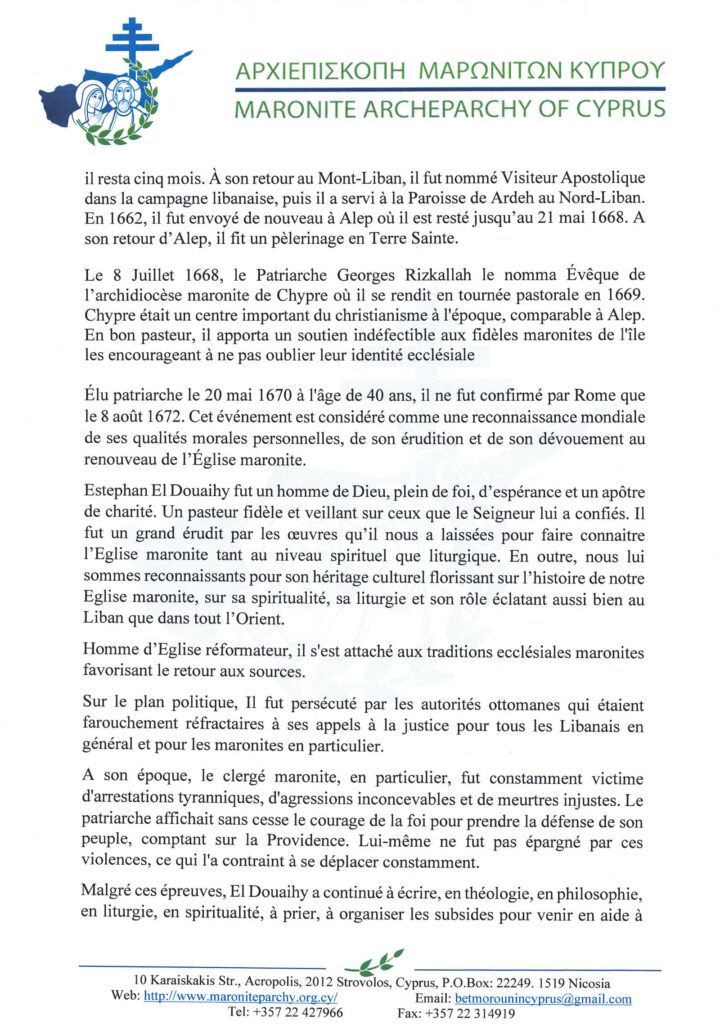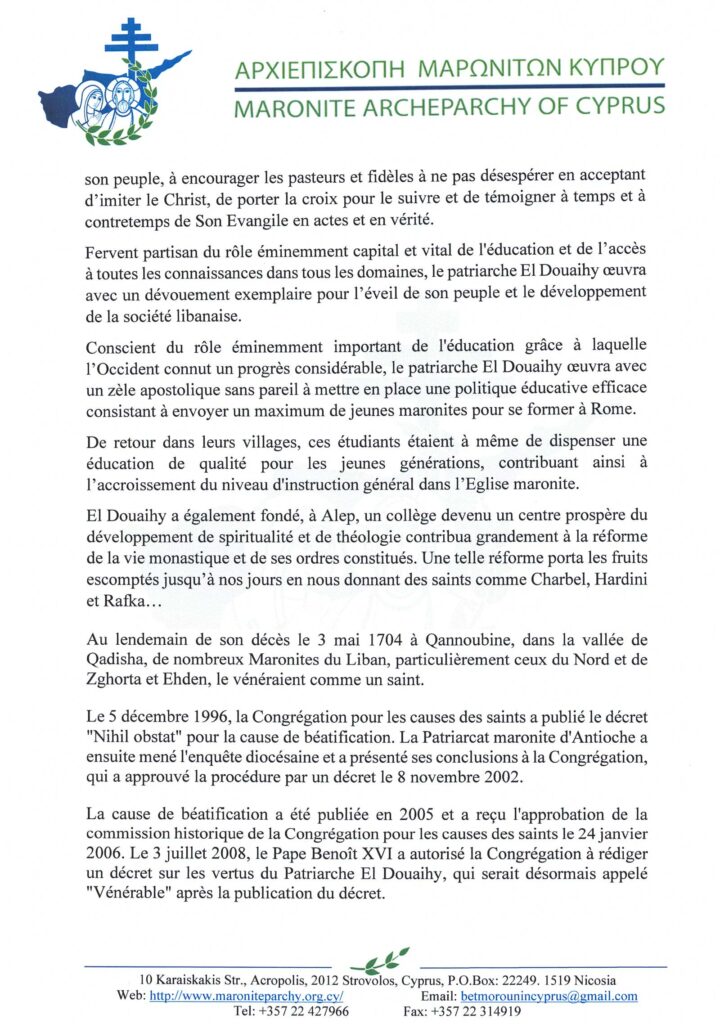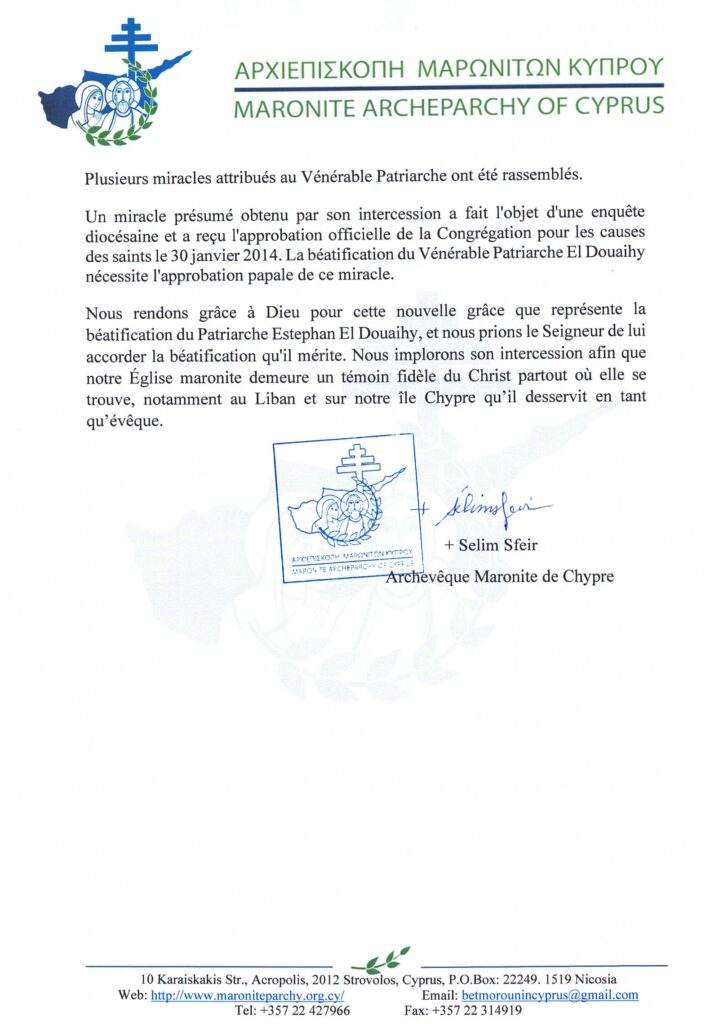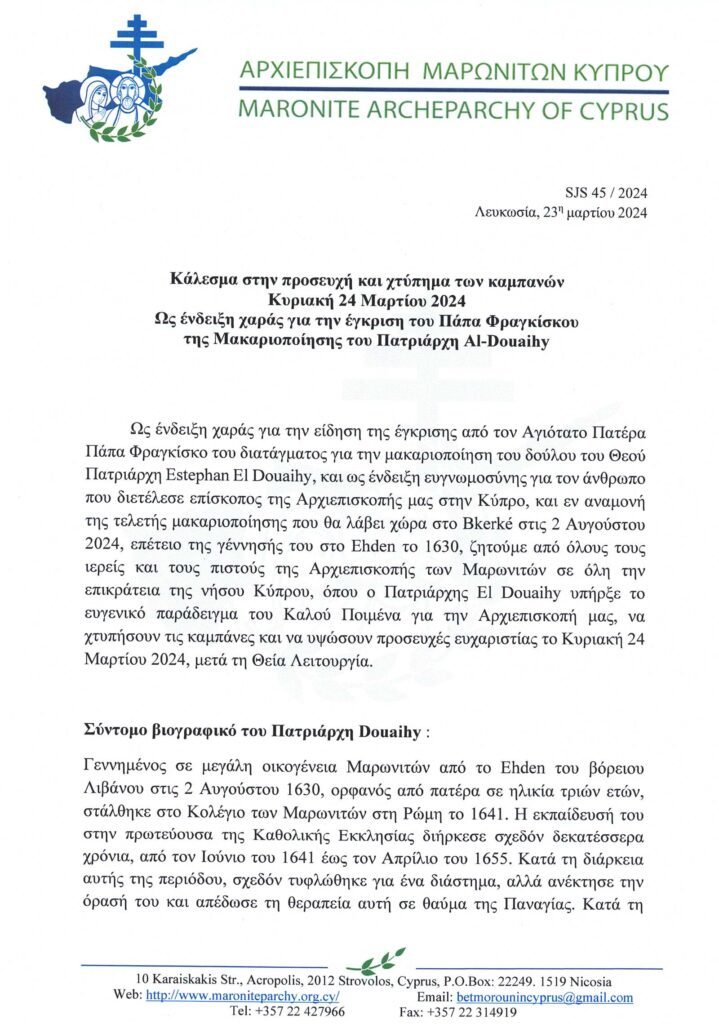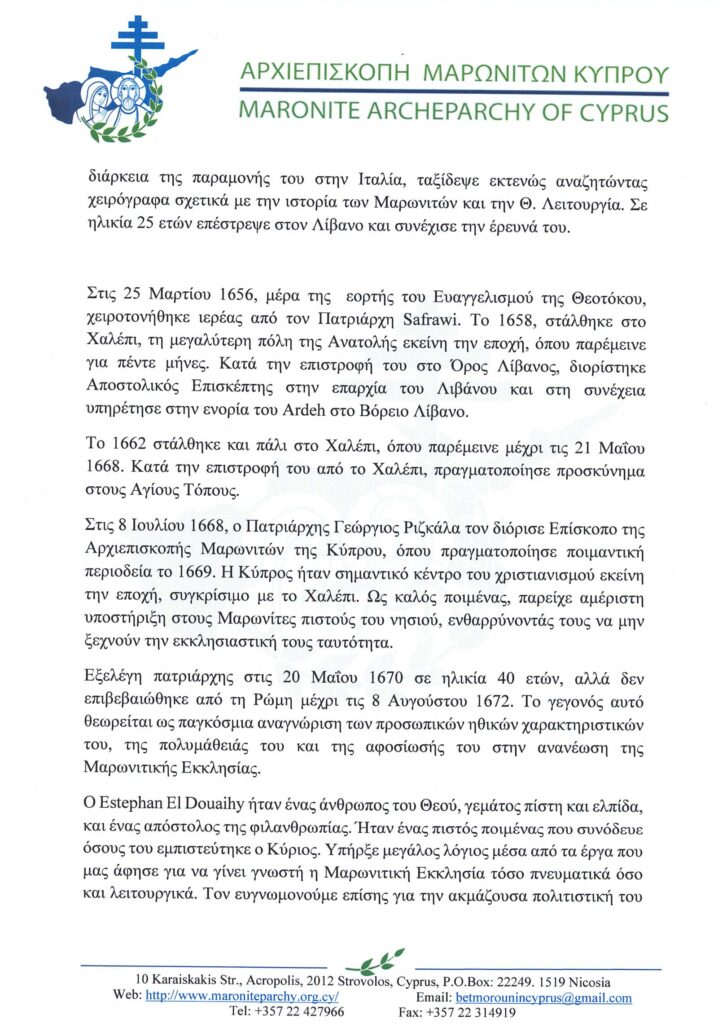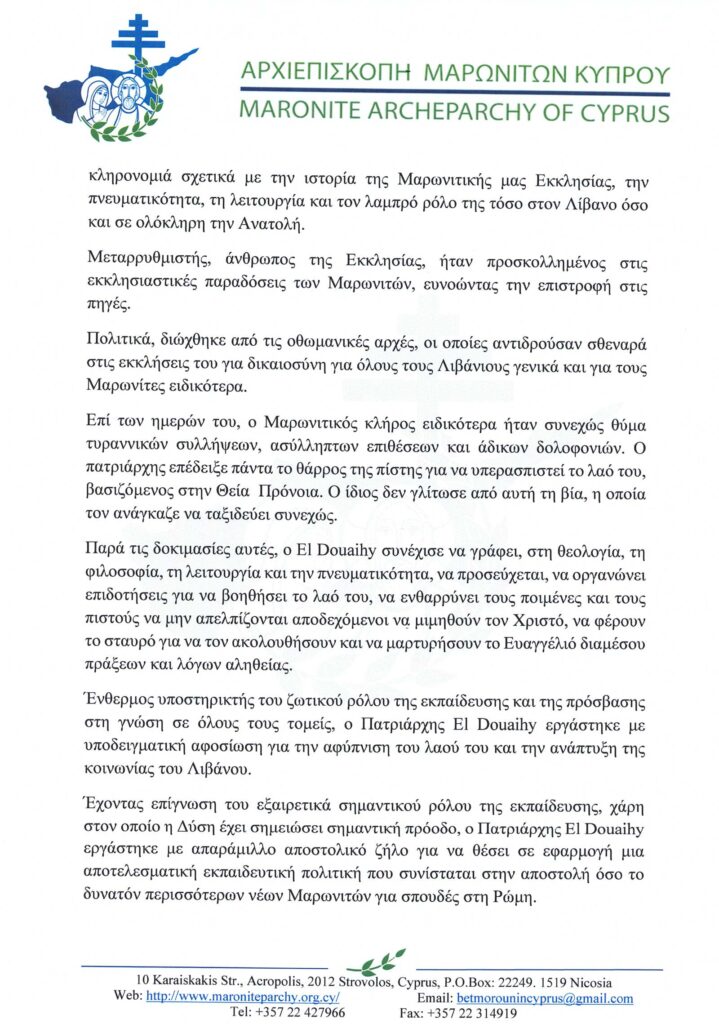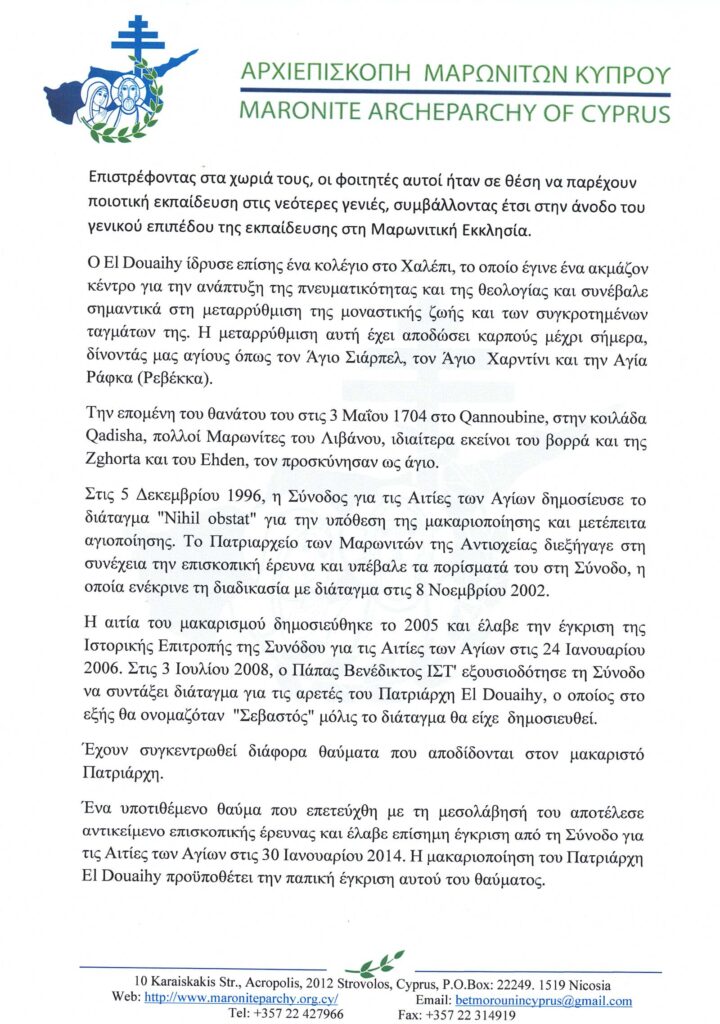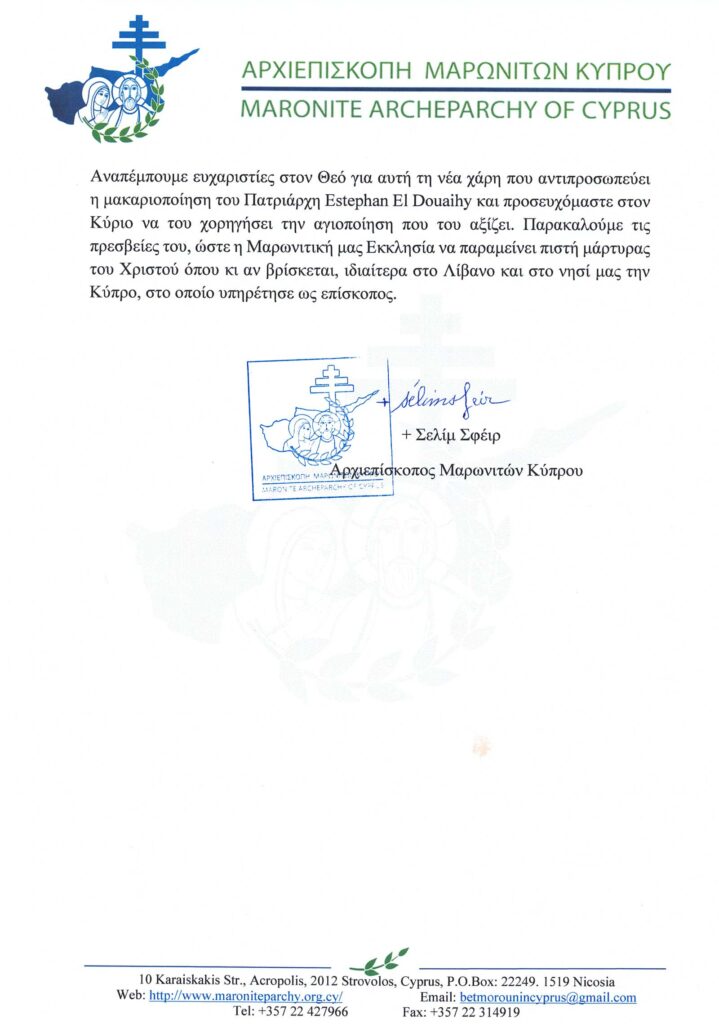Περίοδος της Μεγάλης Σαρακοστής
3η Κυριακή της Σαρακοστής
Ομιλία του Σεβασμιοτάτου Αρχιεπισκόπου Μαρωνιτών Κύπρου
κ. Σελίμ Σφέιρ
Θεραπεία της αιμορροούσας
και η ανάσταση της κόρης του Ιάειρου
Λουκάς 8, 40 – 56
Αγαπητά εν Χριστώ αδέλφια,
Δεν υπάρχει τίποτα πιο δύσκολο από το να ζεις με αυτό που σου
στραγγίζει τη ζωή, που ξοδεύει τα καλύτερα χρόνια της ύπαρξής σου και
την καταναλώνει μάταια, ειδικά όταν επιμένει. Σε τέτοιες συνθήκες, ο
άνθρωπος βρίσκεται αδύναμος, απελπισμένος, αναζητώντας διέξοδο από
την πραγματικότητά του. Υπάρχει τρόπος διαφυγής;
Στο απόσπασμα που διαβάζουμε, μια γυναίκα αιμορροούσα υπέφερε επί
δώδεκα χρόνια, έχοντας ξοδέψει τα πάντα στους γιατρούς, αλλά δεν είχε
βρει ανακούφιση. Σύμφωνα με τον εβραϊκό νόμο, θεωρούνταν ακάθαρτη
και περιθωριοποιημένη στην κοινωνία λόγω της αιμορραγίας της. Δεν
μπορούσε να αγγίξει τους ανθρώπους ή τα αντικείμενα που άγγιζαν,
καθώς θα τους καθιστούσε ακάθαρτους. Το πιο σημαντικό, δεν μπορούσε
να ανέβει στο ναό ή να μπει σε συναγωγή για προσευχή. Ήταν
απομονωμένη από τους ανθρώπους και από τον Θεό.
Ίσως είχε χάσει κάθε ελπίδα για την κατάστασή της, γιατί είχε θυσιάσει
ό,τι είχε για να βρει θεραπεία, όχι μόνο για τη σωματική της ασθένεια,
αλλά και για την απομόνωσή της.
Ο χρόνος περνούσε, η ζωή της εξαντλούνταν και εκείνη ήταν ανίσχυρη,
βλέποντας τον κόσμο να συνεχίζει ενώ εκείνη πέθαινε σταδιακά. Υπήρχε
κάποια διέξοδος γι' αυτήν;
Θα προσπαθήσω να διαβάσω μαζί σας τι κρύβεται πίσω από τις γραμμές
που γράφονται.
Αυτή η γυναίκα είχε ακούσει για τον Ιησού, αλλά δεν ξέρουμε αν κάποιος
της είχε μιλήσει γι' αυτόν ή αν είχε ακούσει από μακριά γι' αυτόν, αυτόν
που θεράπευε τις ανθρώπινες ασθένειες. Ωστόσο, η είδηση του Ιησού
έφερε ελπίδα στην απελπισμένη. Της έφερε μια αχτίδα ελπίδας, οπότε
πήρε την απόφασή της και μάζεψε το κουράγιο της, περιμένοντας την
κατάλληλη στιγμή. Όμως ήταν σίγουρα ανίκανη να τον πλησιάσει στη
μέση του πλήθους, ειδικά στην κατάστασή της, γιατί όλοι γνώριζαν την
ίδια και την κατάστασή της. Δεν θα τολμούσε να τον πλησιάσει μέσα στο
πλήθος! Θα ήταν καλύτερα για εκείνη να τον ακολουθήσει σε ένα
μακρινό μέρος, σε ένα χωριό όπου κανείς δεν την ήξερε. Εκεί, θα ήταν
ελεύθερη να δράσει. Ίσως έτσι να ενεργούσε!
Το ισχυρότερο πράγμα στην πίστη της ήταν ότι δεν αμφέβαλε ούτε στιγμή
ότι η ακάθαρτη κατάστασή της θα μόλυνε εκείνον που εξαγνίζει τους
ακάθαρτους. Αντιθέτως, ήταν πεπεισμένη ότι αν τον άγγιζε, εκείνος θα
την καθάριζε.
Μέσα στο πλήθος γύρω του, μέσα στην αναταραχή που τον περιέβαλε,
γλίστρησε απαρατήρητη και τον άγγιξε, και η αιμορραγία της σταμάτησε.
Αλλά στην πραγματικότητα, δεν ήταν εκείνη που τον είχε αγγίξει, αλλά
εκείνος που την είχε αγγίξει. Γιατί το άγγιγμα του Ιησού στον άνθρωπο
φέρνει την απόλυτη θεραπεία, τη λύτρωση για όσους πιστεύουν σε
Αυτόν.
Η κατάστασή μας είναι παρόμοια με τη δική της, εμείς που
κατακλυζόμαστε από τη ροή της αμαρτίας, η ζωή μας και όλα όσα
περιέχει είναι μάταια και ανώφελη. Η αμαρτία μας κάνει ακάθαρτους σαν
εκείνους που έχουν έναν χείμαρρο να τους στραγγίζει. Μας χωρίζει από
τον κόσμο της υγιούς ζωής και μας εμποδίζει να συναντήσουμε τον Θεό.
Έχετε ακούσει ποτέ για τον Ιησού; Έχετε απελπιστεί από την αιμορραγία
της αμαρτίας στη ζωή σας; Θέλετε να θεραπευτείτε από αυτήν; Πάρτε την
απόφαση, αποφασίστε, ελάτε στον Ιησού, ελάτε σε αυτόν χωρίς να το
καταλάβει κανείς, πιστέψτε ότι αν τον αγγίξετε θα θεραπευτείτε, πιστέψτε
ότι αν γονατίσετε μπροστά Του με μετάνοια και Του ζητήσετε θεραπεία,
δεν θα σας αρνηθεί μια νέα γέννηση που θα αλλάξει τη ζωή σας και θα
σας κάνει γιο και κόρη του Θεού. Ο απόστολος Ιωάννης λέει στο
ευαγγέλιό του: «Αλλά σε όλους όσοι τον δέχτηκαν, σε όσους πιστεύουν
στο όνομά Του, έδωσε δύναμη να γίνουν παιδιά του Θεού, γεννημένα όχι
από αίμα ή από το θέλημα της σάρκας ή από το θέλημα του ανθρώπου,
αλλά από τον Θεό.» (Ιωάννης 1:12-13)
Μην αμφιβάλλετε στην καρδιά σας, μην αφήνετε τις θορυβώδεις φωνές
του κόσμου γύρω σας να σας εμποδίζουν να έρθετε σε αυτόν, η επιστολή
προς Εβραίους λέει: «Σήμερα, αν ακούσετε τη φωνή Του, μην
σκληρύνετε την καρδιά σας.» (Προς Εβραίους 4:7). Αμήν
† Σελίμ Σφέιρ
Αρχιεπίσκοπος Μαρωνιτών Κύπρου

